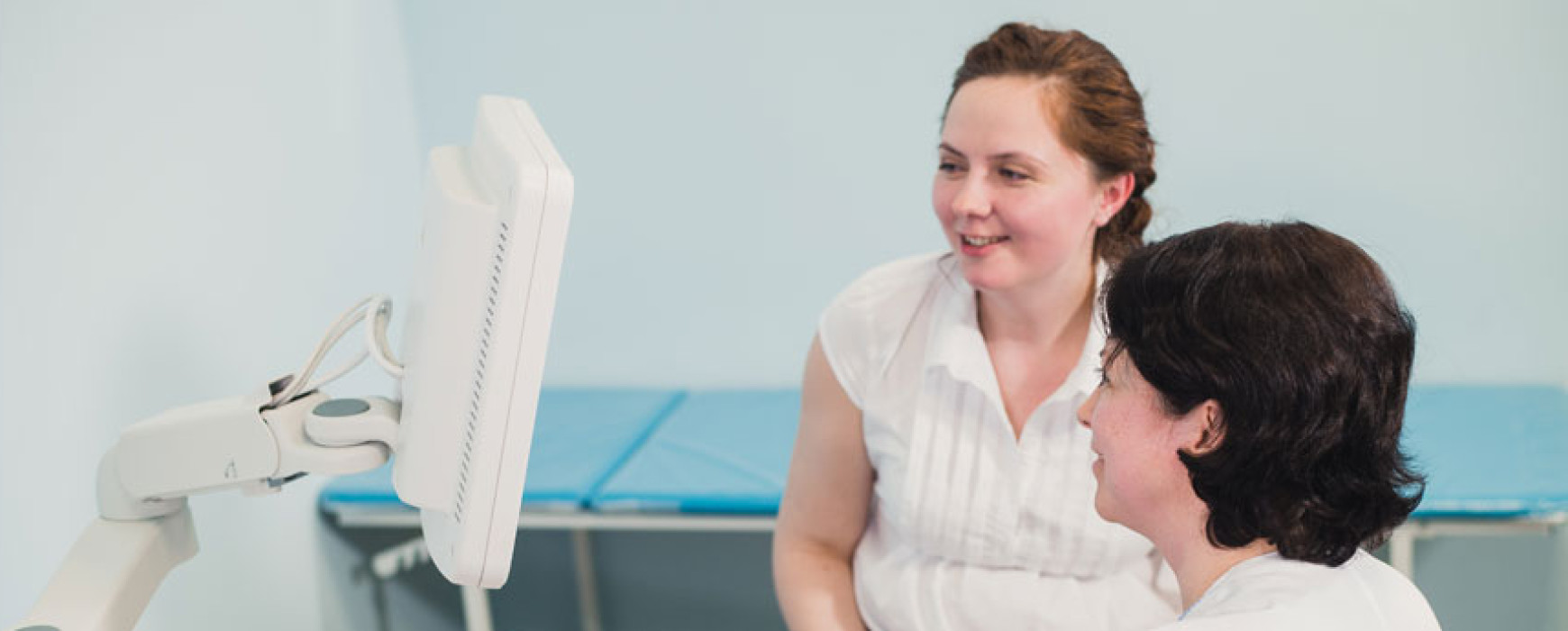IVF as a Solution to Infertility
In vitro fertilization, or IVF, is a method of fertility treatment where eggs are removed from your ovaries and fertilized in a lab to grow into embryos. The embryos are then transferred back to your uterus to complete the pregnancy.
IVF is a viable method for people who have a difficult time conceiving naturally or for other reasons in which traditional conception cannot happen. You may be one of these people in Chicago who thinks IVF is a possible option for you, or who has been told by a fertility doctor in Chicago to consider IVF.
The good news is there are many IVF centers here in Chicago, Illinois and in the outskirts. Many of these fertility centers of Illinois can look over your medical history and your partner’s, test you both, and give you several choices regarding pregnancy. These include IVF, IUI (intrauterine insemination), egg donation, sperm donation, surrogacy, and more.
How do I find an infertility doctor near me?
The best place to start when inquiring about IVF is with your own ob/gyn. He or she will have plenty of knowledge when it comes to the best fertility doctors in Chicago or which doctors in Chicago specialize in IVF. You can also seek out the opinions of other women who are currently undergoing IVF in Chicago. These women can be found in Facebook support groups and other fertility groups, such as Shine Fertility.
How do I know if I’m a good candidate for IVF?
Once you decide on a fertility center in Illinois, the fertility doctor will examine you and your history, test you and your partner, and then make that recommendation. In some cases, your situation may be related to a condition that requires a visit to the gynecologic surgery institute. These can sometimes fix the problem and then no further treatment is required. In other cases, you might undergo a surgical procedure, and then discuss IVF to make pregnancy viable.
I have a busy schedule. Is it better to find an infertility specialist near me or one that’s better in reputation?
That all depends on your situation and your flexibility. Some of the best fertility doctors in Chicago may not be at all near your work or home. Because infertility treatments can be stressful, it may be best to decide what will reduce your stress – a doctor you feel most comfortable with or ease of access to the fertility center. Whether you work in downtown Chicago but prefer a fertility institute in Naperville, or vice versa, you’ll need to figure out what’s the best approach for you. You can also try one practice but if it becomes too difficult, then try another.
Most important is that you have a supportive network around you during this time. You can find other women going through the same treatments to talk to, and also make sure your family and close friends understand and are available for you as well.
IVF Frequently Asked Questions
What is IVF? It stands for In Vitro Fertilization, but it means a whole lot more for many women and their partners who are going through it.
Scientifically, IVF is an assisted reproductive technology in which eggs are extracted and manually fertilized with sperm in a laboratory setting. The resulting embryo is then transferred to the uterus.
IVF has created millions of successful births to couples who opted to use the technology to become pregnant. It is an option for women and men who have had trouble conceiving naturally, including older women who statistically have a more difficult time becoming pregnant. It is also a viable option for single women who are interested in becoming pregnant as well.
How does IVF work?
In most cases, women are first given fertility drugs to help stimulate egg production so that several eggs can be extracted at once to boost the chance of success. During this time, your fertility specialist will take blood samples to test hormone levels and examine your ovaries as well.
Once the eggs are ready for retrieval, the woman undergoes minor surgery to have them removed. The procedure involves the use of a needle in the pelvic cavity to remove the eggs. After retrieval, the eggs are placed in a laboratory dish along with semen from a partner or donor. In some cases, particularly in situations where fertilization chances are lower, a sperm is directly injected into an egg to encourage fertilization. Once the eggs are successfully fertilized and monitored for cell division, they are then transferred into the woman’s uterus using a catheter. This usually takes place between three to five days after fertilization.
Are there risks with IVF?
IVF has its risks the same as any other medical procedures. Some include nausea and vomiting, shortness of breath, severe stomach pain, infection to the bladder and bowel, and risk of carrying multiple pregnancies, which has its own risks.
People who choose to go through IVF should consider counseling with an IVF specialist first to decide whether it’s the right path for you. While IVF often comes with a rewarding end – a successful pregnancy – it can also have many emotional and physical, not to mention financial tolls.
How do I find an IVF clinic?
There are many doctors who specialize in infertility and IVF. Talk with your gynecologist about doctors they are familiar with and whose reputations are highly rated. Meet with a few specialists to see what their approach is and whether they seem like a good fit. While it’s tempting to go with a place that’s known to be friendly with good bedside manners, which are important, sometimes it’s best to choose a place with a high success rate because, in the end, that’s what you’re aiming for. Most importantly, when going through IVF, it’s important to have a strong support system in place. Involve your partner and your family through the process, and seek out friends or a group who understand what’s happening as well.
Fertility Treatment FAQ Answered
Fertility Treatment
What is a fertility treatment? It’s a method of helping people who are having trouble conceiving and can range greatly from surgery to fertility drugs. Fertility treatments are available to women and men and their effectiveness vary by each individual’s needs.
When should I consider a fertility treatment?
Many men and women suffer from various fertility issues that will affect their ability to become pregnant right away. If either of you are aware of any issues, you should speak with a fertility specialist. If you have also had trouble conceiving for a while, you should consider fertility treatment to help.
What type of fertility treatments are there?
There are many types of fertility treatments available, and as technology improves, so do women’s chances of becoming pregnant. Depending on your situation, your fertility treatment may be any of these: a routine surgical procedure to correct an anatomical issue, fertility drugs to encourage your ovaries to release eggs, in vitro fertilization (IVF), intrauterine insemination (IUI), embryo transfers, donor eggs or sperm, and surrogacy. The options are many, thereby allowing doctors to help you find the fertility treatment that’s most appropriate for you.
How much will fertility treatment cost?
Fertility treatments range in costs and sometimes are covered by insurance, depending on the procedure and the state in which you live. Some companies now are offering fertility treatments and egg freezing as part of the benefits package to encourage a more family-friendly, supportive work environment.
How difficult are fertility treatments?
Each situation differs from individual to individual. For some, the fertility treatments work right away, for others, it may take some time and patience. The most important thing with regard to fertility treatment is to make sure you have a strong support network. Talk to your partner or family about what you’re doing and ask for their support. Find a support group of other people who are going through the same time and feel free to speak openly about your feelings. Fertility treatments are extremely common, and there is no need to feel alone in the process. Just because you are seeking a fertility treatment doesn’t mean you are less able-bodied than anyone else to have a baby or can’t be a good parent.
Fertility Treatments: Understanding Your Options
If you’re having trouble conceiving, there are plenty of fertility treatments you can try. If you’ve been trying to get pregnant for several months without any luck, you should contact a fertility specialist. The specialist will do a thorough examination and collect your medical history to determine what’s causing your fertility issues.
How do I know if I need fertility treatments?
When you visit the fertility specialist, he or she will test you and your partner to see what the cause for the problems are. Sometimes the treatments will be just for you, or just your partner, and sometimes it’s a combination to boost the chances between the two of you.
What type of fertility treatments are there?
There are many options for fertility treatments. There are fertility drugs which regulate hormones and trigger multiple egg releases each month. Surgery is another option which can correct any gynecological problems, such as removing fibroids, remove tissue caused by endometriosis, or treat PCOS (polycystic ovarian syndrome). In vitro fertilization (IVF) is another popular method in which eggs are removed from your ovaries, fertilized with sperm, and then the resulting embryos are transferred to your uterus. There is also intrauterine insemination (IUI), the use of donor eggs or sperm, and surrogacy. Because of the plentiful options, you and your doctor can work together to find the fertility treatments that are best for you.
How much do fertility treatments cost?
Fertility treatments range in price depending on the procedure and whether they are covered by insurance. In some states, fertility treatments are covered by insurance. Consult with your doctor to see what’s covered by your insurance and what you can afford to spend.
Will fertility treatments work for me?
The outcome for each individual varies. For some, it will work immediately, and for others it might take some time. Make sure you talk with your doctor and nurses about any concerns or questions you have,
What should I do while undergoing fertility treatments?
It’s important to build a strong support network of friends and other people who have undergone fertility treatments as well. You’ll find Facebook groups and other online networks where you can ask questions and listen to stories of others’ questions and struggles. Make sure you have supportive friends and family nearby too. It’s easy to feel alone during this time, but having that strong network will help you through some of the tougher moments.
In Vitro Fertilization (IVF): Frequently Asked Questions
What is IVF? It stands for In Vitro Fertilization. It is an assisted reproductive technology that helps women having trouble conceiving with getting pregnant through alternative methods. IVF has successfully helped people create millions of successful births who otherwise had trouble getting pregnant naturally, including older women who statistically have a more difficult time. It has also helped many single women who were interested in becoming pregnant as well.
How does IVF work?
During IVF, eggs are extracted and manually fertilized with sperm in a laboratory setting. The resulting embryo is then transferred to the uterus.
In most cases, women are first given fertility drugs to help stimulate egg production so that several eggs can be released and extracted at once to boost the chance of success. During this time, a fertility specialist will take blood samples to test hormone levels and examine the woman’s ovaries as well.
When the eggs are ready, they are removed via minor surgery using a needle in the pelvic cavity, then placed in a laboratory dish with semen from a partner or donor. In some cases, particularly in situations where fertilization chances are lower, a sperm is directly injected into an egg to encourage fertilization. When the eggs are successfully fertilized and monitored for cell division, they are then transferred into the woman’s uterus using a catheter. This usually takes place between three to five days after fertilization.
What are the risks behind IVF?
During and after an IVF procedure, patients face the same risks as any other medical procedures, including nausea and vomiting, severe stomach pain, and infection to the bladder and bowel. Because of the use of multiple eggs, the woman has a greater chance of carrying multiple pregnancies at once, which has its own risks during pregnancy for both the mother and the babies.
People who choose to go through IVF should consider counseling with an IVF specialists first to decide whether it’s the right path for you. While IVF often comes with a rewarding end – a successful pregnancy – it comes with many emotional and physical tolls, as well as financial burdens in areas where fertility is not covered by insurance.
How do I find an IVF specialist?
There are many doctors who specialize in infertility and IVF. You should consult with your doctor for a few references and talk with other people who have gone through IVF. Make appointments with a few specialist to see how their approach fits with your needs. Also, when going through IVF, it’s important to have a strong support system in place. Involve your partner and your family through the process, and seek out friends or a group who understand what’s happening as well.
Overcoming Fertility Issues
Fertility is a tough area to navigate, especially when you hear of other people’s seemingly easy success at becoming pregnant. Baby showers, ultrasound photos, gender reveals, even baby shops can be hard to take. While fertility issues are actually not uncommon, it’s still a hushed topic that few are willing to discuss or admit.
While it seems that everyone else’s fertility is right on par, it’s important to understand that you don’t actually know their back story unless they tell you outright. For all you know, your co-worker has been trying to get pregnant for months. Or some other acquaintance miscarried or lost a baby. They’re more likely to display the happy signs of pregnancy, but they’re less likely to announce their fertility struggles.
Sometimes, it’s easiest just to assume that people had a more difficult time fertility-wise than they’re letting on. For some people, they might have more trepidation about announcing their successful pregnancy or are just private people, but others might be so elated that they finally were able to get pregnant, fertility issues and all, that they’ll announce it to the world.
If you’re experiencing fertility issues and feel helpless, depressed or generally sad, it helps to build a solid network of people you can rely on. Reach out to family and learn more about their own fertility issues. Sometimes fertility issues run in the family. Talk to your friends; even if they didn’t experience any problems getting pregnant, they are bound to know people who have. Look for support groups in your neighbourhood or even online. Lastly, talk to a therapist about what you’re feeling.
It’s also important to find a fertility specialist who is reputable. While it would be ideal to find a doctor who can double as a therapist, however, it’s better to let the fertility specialist focus on your physical health while a therapist can help you through the more emotional aspects. It’s important to keep in mind that sometimes the best fertility specialists might not have the time or personality that matches your emotional needs. At the same time, it’s crucial that the fertility practice explains your options and procedures clearly to you. They may also have a mentor program in which they can partner you with other patients or former patients who can help you through the whole process.
While stress over fertility issues is quite common, it can help to try some activities that reduce the stress. Yoga, meditation, t’ai chi, or even walking with your partner can help boost circulation and relieve some tension while also spending time together.
Choosing The Right Gynecologic Institute for You
There are many gynecologic institutes in Chicago that focus on women’s health, ranging from fertility to oncology. But because women’s health is so specific and wide-ranging, each one tends to focus on a specific issue or area. Some gynecologic institutes focus on surgery, whereas others may just be general practice. Most, however, are specialists rather than general ob/gyns. Most exist to correct an existing issue that a woman is undergoing. How do you know what to look for?
In many cases, your doctor may refer you to a gynecologic institute in Chicago, which is where you might begin your journey. If your situation is infertility, a gynecologic institute will examine and test what’s causing your problem, and you may undergo surgery to correct it. In other cases, a cyst or abnormal growth may also be removed and examined, and further treatment prescribed. Or, your situation may be preventative, in which you might undergo a hysterectomy or other removal.
While your doctor may refer you to a gynecologic institute, you should also check out others based on referrals from peers or other physicians. The good news is there are plenty of options in Chicago, the more difficult one is how to go about making the choice. Find out what their specialty is and how many procedures they do successfully each year. Learn what hospital they are affiliated with. Talk to previous patients about their experience and whether they had success with that particular gynecologic institute. At the very least, it is always a good idea to have a second opinion as well on your situation.
If the situation is fertility and surgery is required, it may be for assisted reproductive technology, infertility treatment, or some kind of minimally invasive gynecologic surgery. It may stem from cases of endometriosis or scar tissue left behind as a result of endometriosis treatment. In other cases, it may be related to uterine fibroids, uterine prolapse, excessive bleeding, menorrhagia, cervical and uterine cancer.
Gynecologic surgery is extremely high-tech and intended to be minimally invasive. It’s a good idea to ask what kind of technology the surgeon at the referred gynecologic institute uses to perform the procedure. Smaller incisions help minimize post-surgery issues and recovery, and procedures may be even more precise. You can ask a few physicians at different gynecologic institutes around Chicago for their opinion about different types of surgical procedures and which they would suggest.
In addition, if you’re still of child-bearing age and wish to consider fertility preservation, talk to your doctor about options and when a good time to undergo that before your surgery.
Fertility preservation for cancer patients required to be covered by insurance under new Illinois law
This past Monday, Governor Bruce Rauner passed a bill (House Bill 2617) that will require health insurance companies in Illinois to cover the preservation of eggs, sperm and embryos for patients with cancer and certain other diseases.
In my years of practicing medicine, there have been many evolutionary advances, which have enhanced patient care; none more important than the birth of the first IVF baby in July, 1978. In addition, there have been seminal events that have transpired to aid our patients in their quest to conceive. For example, in our state, the Illinois Family Building Act of 1991 mandated fertility coverage for our patients. Monday’s groundbreaking event marks yet another occurred.
In my role as consulting reproductive endocrinologist of Advocate Lutheran General Hospital's Hematopoietic Progenitor Cell Transplantation (HPCT) program, I’ve had the great honor to provide egg cryopreservation services to patients newly diagnosed with various forms of cancer. At a time when patients are wrapping their heads around a new found diagnosis, deciding on medical or surgical treatment, the thought of fertility cryopreservation, which must be completed within weeks of their diagnosis, adds yet another burden to this very daunting and difficult time. Add to this, considering payment for services, even though markedly reduced, makes the situation even more problematic. With the implementation of this bill, we can take the concern of cost off of the patient’s very full plate and provide the most advanced care as possible to enable their future miracle.
This bill includes the following passage:
“Amends the Illinois Insurance Code to provide that a policy of accident or health insurance shall provide coverage for medically necessary expenses for standard fertility preservation services when a necessary medical treatment may directly or indirectly cause iatrogenic infertility to an enrollee. Defines ‘iatrogenic infertility’.”
In my interpretation of the above, it would appear that patients will now have insurance coverage for egg freezing when there is potential impact of ovarian function secondary to ovarian cysts, especially cysts of endometriosis (endometriomas) or the resultant necessary surgery.
I salute our state legislature and the governor for passing and signing this bill. I congratulate the patient and patient advocacy groups for their efforts in raising the consciousness of our state government. It is truly inspiring.
Advanced Fertility Resources in Chicago
There are plenty of resources for advanced fertility methods in Chicago. Sometimes, a couple requires that next step to give their fertility journey a nudge. That’s after trying textbook fertility methods which just might not be working for you. It’s actually quite common among couples, and there are a lot of alternatives that you can discuss with your doctor.
The great news about advanced fertility is that there are so many new and innovative methods that come up around town, and many options for couples or individuals to try. You’re bound to find a physician in Chicago who is trained in the latest fertility treatments.
First, the doctor will usually recommend a variety of diagnostic tests to examine how to proceed. This usually involves bringing in medical records to your appointment, including family health history, gynecological history, and any previous infertility treatments at prior practices. The doctor will also perform baseline tests for each partner.
There are many types of advanced fertility treatments available in Chicago and elsewhere. During in vitro fertilization, there are several procedures that can help the process along. For example, a significant amount of sperm is usually required for IVF. But if the male partner has a low sperm count or other concerns regarding sperm, an Intracytoplasmic Sperm Injection (ICSI) can help use the few available sperm. The sperm is immobilized using specialized micromanipulation equipment and then injected into the egg.
Another advanced fertility procedure that some doctors in Chicago offer is assisted zona hatching (AZH). Prior to implanting an embryo into the uterus lining, it has to hatch out of its zona pellucida, or outer layer. However, some embryos have a harder time hatching out of the zona because the IVF process can abnormally thicken that layer. AZH is another micromanipulation technique used to stabilize the embryo and help the embryo hatch prior to transfer.
Preimplantation genetic diagnosis (PGD) is also another advanced fertility procedure that helps test embryos for genetic disorders before placement in the uterus. It is usually considered for women over the age of 37 or those with recurrent miscarriages. It is also suggested for families with a history of genetic diseases. The test is accomplished by testing the DNA in one of the cells in each embryo, which helps the doctor select which embryo for implantation.
All advanced fertility treatments should be performed in a tightly-controlled environment, including the correct air purity, temperature, oxygen level, and others for an embryo-friendly atmosphere.
When interviewing advanced fertility doctors in Chicago, it’s a good idea to ask about the different treatments they offer, the success rate, whether the doctor or a nurse does the procedure, and how they control for success. This helps give you a good sense of what to expect from the practice and to help relieve any concerns you might have.
Finding a Fertility Specialist in Chicago Can Be Daunting: How Do You Choose?
There are lots of reasons one might visit a fertility specialist: you might be an older woman (38 or older), suffer from endometriosis, experienced multiple miscarriages or ecotopic pregnancy, blocked fallopian tubes, polycystic ovary syndrome (PCOS), or are a male with low sperm count.
First, you’ll want to find the fertility specialist in Chicago who will help you successfully reach your goal: to have a baby. Start by talking to people who have successfully become pregnant through a fertility specialist and ask about the different doctors and practices they’ve visited, their experiences and who they would recommend.
There are a lot of resources available to find people who are willing to share their experiences in finding a fertility specialist in Chicago. Various non-profits have forums and chat rooms where you can pose your questions. There are also several Facebook groups in the Chicago area directed at people looking for fertility help. Once you’ve narrowed down a few names, you can also start talking with people who have direct experience with those specific doctors and ask them their opinions.
It’s important to distinguish between a fertility specialist and one who is not. Specifically, a fertility specialist is also known as a reproductive endocrinologist, and will have spent three years after medical school in a reproductive endocrinology and infertility fellowship. This is something you’ll want to ask a doctor – where they pursued their fellowship.
Next, you’ll want to schedule an appointment with at least a couple of the fertility specialists to see which one can help your specific needs. Bring a list of questions and be direct with your concerns. Find out how well the practice communicates and decide whether you’re willing to make a longer drive for appointments with one particular fertility specialist in Chicago versus another.
The fertility specialist may do some initial tests to get a better sense of your personal health, as well as on your partner if one is available. It also helps to bring any history or prior health records with you for the doctor’s review.
Each fertility specialist in Chicago may have a different focus or distinction that makes them stand out above another. Based on what your individual needs are, it will help to narrow down your choice based on their focus as well.
Because the fertility journey is an emotional one, combined with hormones and a lot of waiting, you’ll want to find a practice that can help you through the process as easily as possible. However, because there are so many good fertility specialists in Chicago, you’ll also want to make sure you find the best one who ultimately succeeds in meeting your end goal: whether that’s to help you become pregnant, find a surrogate, or perform successful surgery. That individual or practice might not mesh with your immediately personality or comfort zone, but it helps to surround yourself with a great support network to get through the entire journey.










